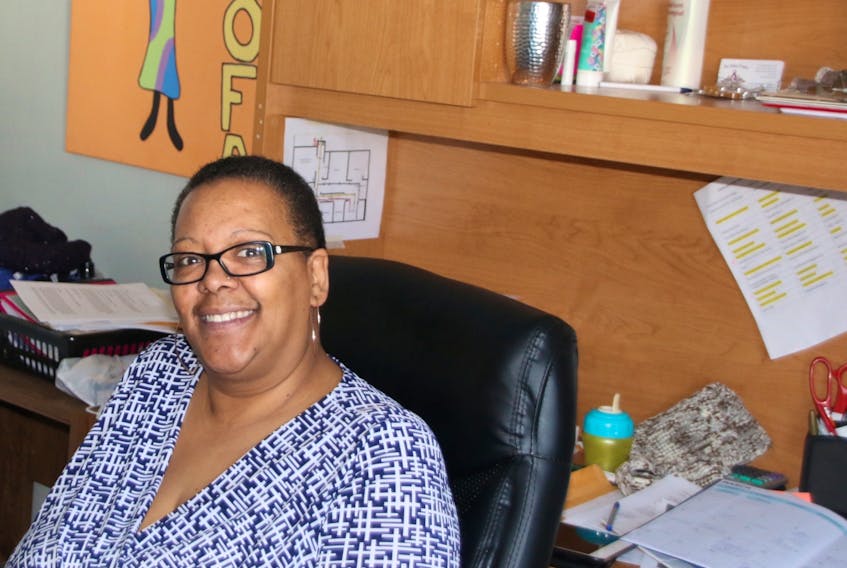TRURO, N.S. — Tracey Dorrington-Skinner first experienced sexual abuse while at the Nova Scotia Home for Colored Children.
It didn’t end there.
“I experienced years of verbal, emotional, physical and sexual abuse and I had a lot of issues because of it,” she said. “if I hadn’t had children, I don’t think I’d be here today. I had to survive for them.”
Dorrington-Skinner was born in 1965 and spent the first years of her life in Truro, where her alcoholic father often beat her mother. After her parents separated she and her siblings, along with her mother, lived with their grandmother. Once, when her mother was away, her grandmother had to go into hospital, so she called social services.
“They took us to the Home for Colored Children, and what was supposed to be a weekend ended up bring years,” she said.
She was seven years old when she went into the home, where she experienced abuse from staff and other residents.
Staff members fondled her at first, and as she grew they moved on to rape and used sexual abuse as a punishment. They made sexual comments and set up female residents to have sex with the adolescent males. Sexual favours were often required in exchange for a drive in the home’s van.
Children were also told they were stupid and would amount to nothing, she said.
“I felt obligated to have sex and was constantly walking around in a state of heightened anxiety,” recalled Dorrington-Skinner. “Even after I left, when I was about 20 years old, one of the men from the home came, saying he was there to check up on me. He wanted sex and I didn’t feel I could refuse.”
She became involved with drugs and experienced depression, leading her to seriously consider suicide. Eventually, she connected with a therapist who was able to help her.
“She helped me understand how I was treated as a child affected me as an adult,” she said. “I still feel anger but I’m able to enjoy my life and help others.
“The biggest thing I’m able to help people understand is that they’re going to be okay. I can validate what they’re feeling is normal."
Truro woman experienced sexual abuse at the Nova Scotia Home for Colored Children

STORY CONTINUES BELOW THESE SALTWIRE VIDEOS








